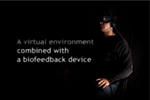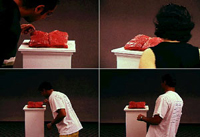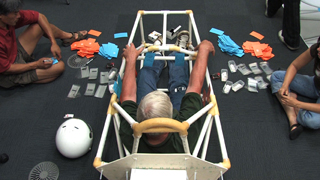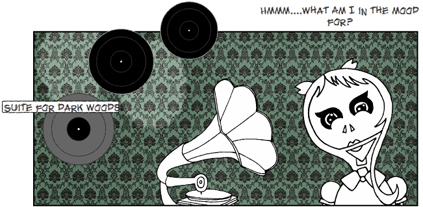Difference between revisions of "Main Page"
(→Projects) |
Ccastellanos (talk | contribs) |
||
| Line 20: | Line 20: | ||
== Walking Meditation == | == Walking Meditation == | ||
| + | |||
| + | [[3D sound resources]] | ||
== Banyen Tree == | == Banyen Tree == | ||
| − | |||
=='''Projects''' == | =='''Projects''' == | ||
Revision as of 22:04, 22 June 2010
BioMedia Lab
School of Interactive Arts and Technology(SIAT), Simon Fraser University
Professor: Diane Gromala (Assoc. Director, SIAT)
dgromala [at] sfu [dot] ca
The BioMedia Lab is dedicated to creatively exploring the relationships among art, technology, and the biosciences.
Our interests range across disciplines: biomedical phenomenology, open source DNA, visceral forensics, genome hacking, affective biometrics, and biomolecular networking.
Projects in the BioMedia Lab emphasize the role that aesthetics, design, and representation play in our broad understanding of biotechnology, biomedicine, and related fields. Many projects involve collaboration with SFU colleagues and students in computer science, biomedical engineering, bioinformatics, electrical engineering, and architecture.
Transforming Pain
Walking Meditation
Banyen Tree
Projects
Meditation Chamber
VR Environment that responds to a person's state - Diane Gromala
The Meditation Chamber is an immersive VR environment that provides users with real-time feedback. Wearing a head-mounted display and biofeedback device, users are guided through a series of relaxation and meditation techniques. In real-time, the audio and visuals are synced to the users' continually changing physiological states (respiration, pulse rate and sweat gland activity (a measure of calmness)). As users' approach meditative states, the hypnotic visuals dissolve to moving mist and darkness as the user relaxes. Exhibited at SIGGRAPH's Emerging Technologies, and seen on CNN.
MeatBook
A project that provokes users' senses of their visceral responses.- Diane Gromala
A time-based (that is, decaying) slab of meat, constructed as a book, is embedded with various sensors that cause the meat to react and quiver as the viewer approaches it. The reanimated flesh also responds with other movements and sound when users touch it. The next stage of development includes artificial intelligence and explores notions of generative art.
Neurofloat
A novel interface for exploring brain data - Steven Barnes & Meehae Song
The goal of the NeuroFloat project is to create an interactive system that uses electroencephalographic (EEG) or other biological signals obtained from the user as a primary input for navigation through an immersive real-time 3-D visualization of various regions of the human brain. One of our primary goals is to create a system where the brain-computer interface is intrinsically related to content of the virtual-reality (VR) environment that it interfaces with. Accordingly, we have chosen to develop multiple VR environments that collectively represent a tour through the early stages of the user’s very own visual system.
Unconventional Racecar Interfaces
A tool for creating interfaces with racecar drivers - Jack Sam
A person's psychological and physiological states are different when driving a racecar from when commuting to work. The goal of this research method and its tools is to understand the experience of racing and to use this knowledge to design novel interfaces for racecars.
Scarlet Skellen and the Absent Urchins
A novel interface that changes aesthetics based on affective states - Angela Tomizu & Joshua Tanenbaum
Scarlet Skellen and the Absent Urchins is an interactive, multimedia comic book that employs a user modeling approach for affective interaction.




